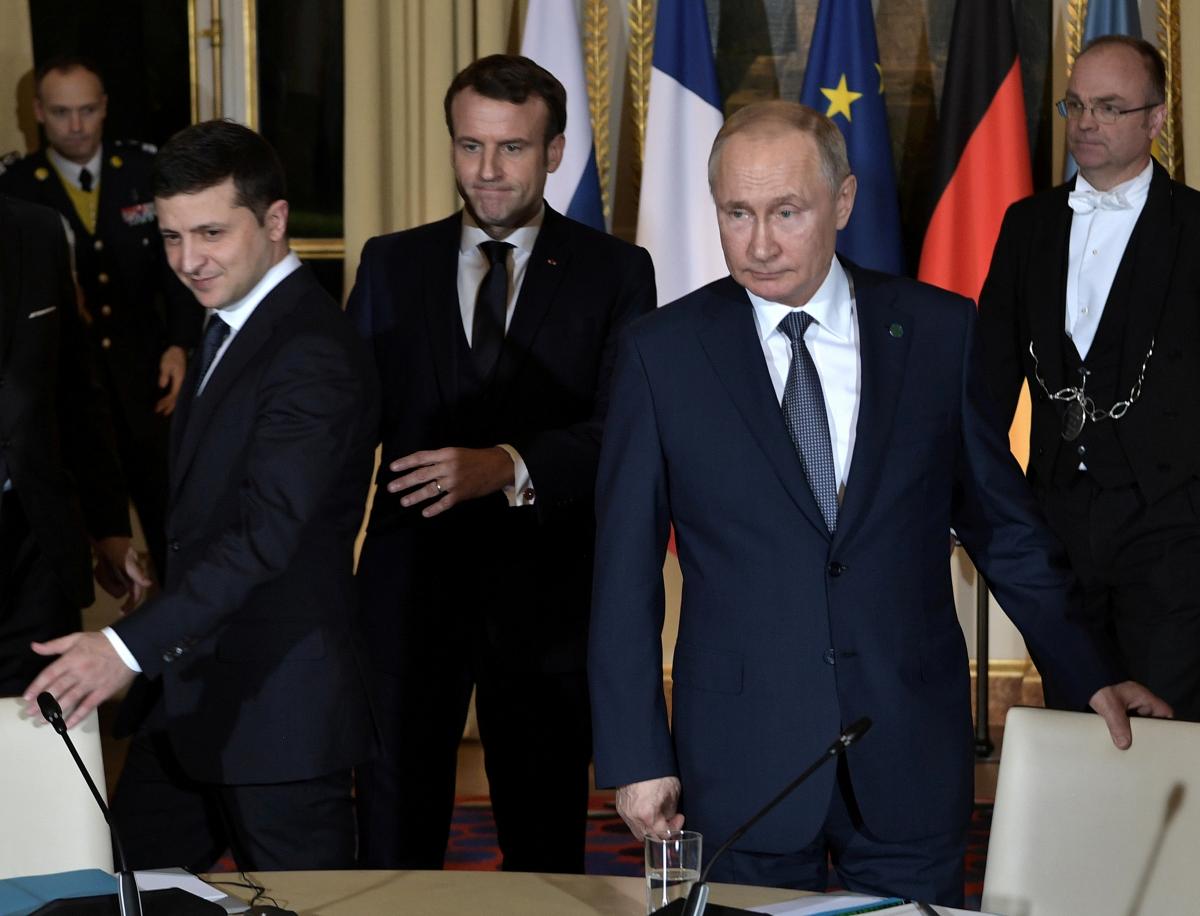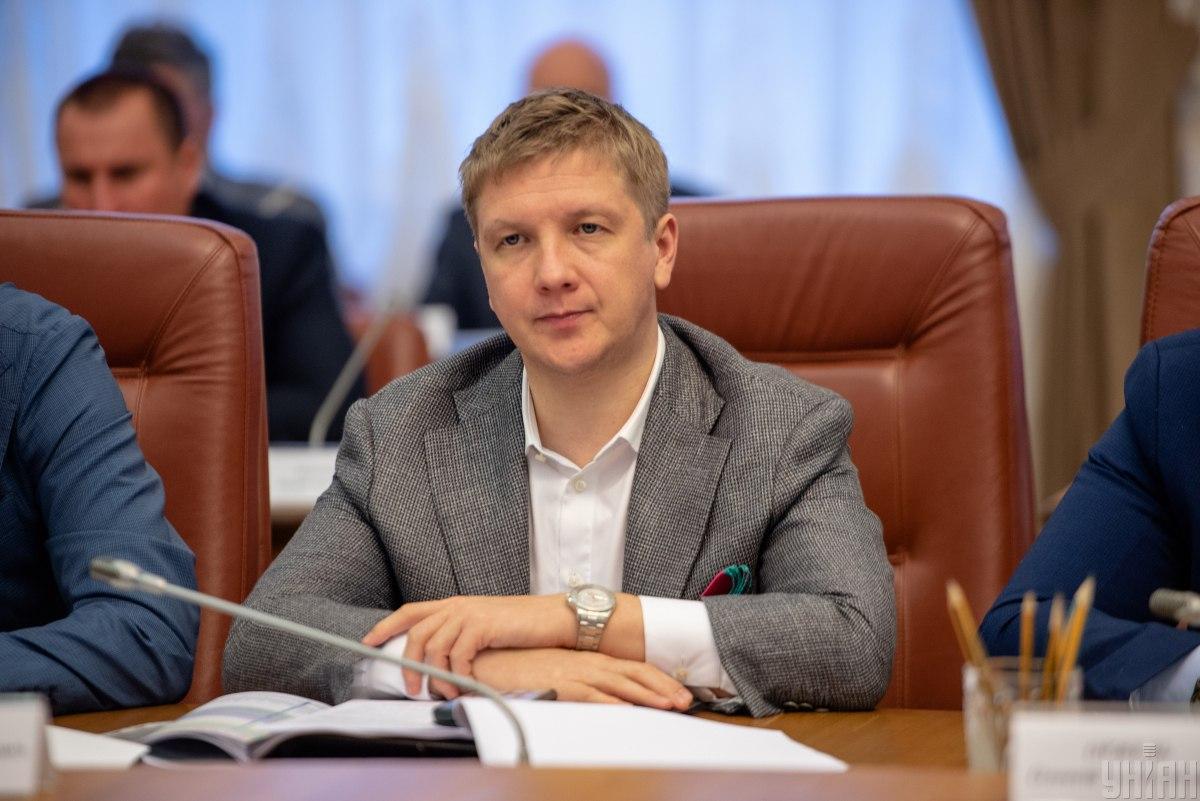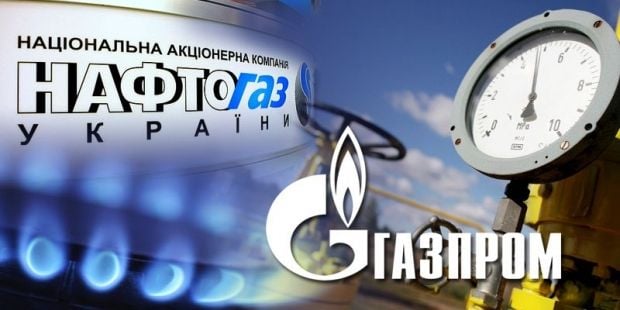
Gas transit in Normandy format. What did Zelensky and Putin agree upon
Negotiations have been held in the Normandy format between the leaders of Ukraine, Germany, France, and Russia. The main issue of discussion is the fate of Donbas. But the gas topic was also touched upon on the summit's sidelines. Zelensky and Putin discussed it bilaterally.
After a three-year break, negotiations were held in the Normandy format. The round table brought together the leaders of Germany, France, Ukraine, and Russia. First of all, the question of the fate of Donbas was discussed. But there were some gas talks there, too. They took place during the first bilateral contact of the presidents of Ukraine and Russia (before that they had only talked on the phone several times).
Following the meeting, President of Ukraine Volodymyr Zelensky announced a rapprochement of the positions with the Russian Federation regarding the conclusion of a new agreement on gas transit on better conditions than Ukraine had before these negotiations. The question is very important, since on December 31, the 10-year transit agreement expires. At stake is the image of Ukraine as a transit state, as well as billions of dollars in revenues to the state budget.
"I can't say anything yet, because there is no agreement [on the transit of Russian gas via Ukraine after 2020], but I'm sure that we have more chances of signing it on better terms than our representatives discussed before, when a few very difficult meetings yielded fundamentally no answers," Zelensky said.
According to him, it is not the time to disclose all the details, but "we are not talking about a contract for one year." "That is, we are talking about a few years. I think there will be more. I insisted on the most ambitious conditions favorable to Ukraine and Europe, that's 10 years ... It is very difficult when one side insists on a year, while we insist on 10. I think we will find something in the middle. It seems we will," Zelensky said.
In addition, he confirmed Ukraine's readiness to receive gas from Russia as a pay-off of a $3 billion debt of Gazprom by the Stockholm arbitration award. As for the further discussion of the transit agreement, it will continue at the advisors' level.
"As for gas, we had a bilateral meeting. As part of our Quartet, we did not discuss the issue of gas transit. During a bilateral meeting with the president of the Russian Federation, we talked about this ... We discussed the issue, we started to. And it seems to me that the issue has been unlocked. And now, at the level of advisors, the possibilities, format, volume, price and so on, details of the gas transit agreement will be discussed," Zelensky said.
Putin outlined the position of the Russian side. It remains the same: a 25% "discount" on gas for industrial consumers if Ukraine and Russia agree on "honest joint work." Apparently, "honest work" is the nullification of claims under the Stockholm arbitration, as the head of the Russian Federation has repeatedly stated.
"The price of gas for domestic consumers, for citizens is subsidized, and we cannot calculate the price from the subsidized price. This is an ordinary economic logic," Putin added.
Parties agreed to continue negotiations, but time is running out
The Russian media immediately threw a lot of news into the information space under the headings - "Ukraine and Russia agreed on gas transit." But our side dispelled their assertions.
Executive Director of Naftogaz Yuriy Vitrenko on the sidelines of the summit said that Ukraine and Russia had not agreed on signing a new transit contract. "We agreed to continue to negotiate," he said, adding that the talks were constructive, and it is planned to continue them in both bilateral and trilateral formats.
"And only after that will it become clear whether there will be an agreement or not," Vitrenko emphasized.
Naftogaz also published its statement on Facebook: "Listen to classics instead of reading Soviet newspapers! Our position: Gazprom repays a $3 billion debt, a long-term transit contract with the new GTS operator according to European rules, significant reasons for refusing current arbitration proceedings. We are committed to constructive negotiations, ready for equivalent exchanges, and we strive to secure Europe from a new gas crisis. But this requires willingness of the other side. The Russian side did not bring anything new on gas to Paris. We didn't bring anything new there either. We agreed to continue negotiating. The priority is trilateral negotiations with the participation of the European Commission."

By the way, on the eve of the Normandy Summit, Naftogaz CEO Andriy Kobolyev made a statement: "The Ukrainian side has always taken and this time also takes our standard position, which is aimed at maximizing the preservation of the interests of Ukraine as a state, as a transit state and as the owner of a large asset. This is, first of all, our GTS, as well as the case already won by Naftogaz in Stockholm and the requirements for the ongoing arbitration in Stockholm. All these positions have been taken into account. And today they were also once again voiced to the Russian side as our vision of the situation."
Prime Minister Oleksiy Honcharuk also spoke about the gas talks: "Ukraine will continue to negotiate on gas, maybe it won't be easy, maybe it'll include a 'gas war.' But we are fully prepared for this: our storage facilities are full, our logic is supported by the EU and the Stockholm arbitration award, while Nord Stream 2 is yet to be completed. We need a long-term contract. We emphasized we would not give up on their debt. One of the options we're considering is that we can accept debt through gas."
Also, he noted that Ukraine managed to achieve its goal in the gas issue, taking it beyond the discussion of Donbas settlement: "We did not agree on a contract, but this should not have happened in Paris anyway."
Having swallowed all the statements regarding gas negotiations held, Putin's spokesman Dmitry Peskov also decided to comment on the situation. He acknowledged that Ukraine and Russia had failed to reach a solution to the "transit agreement issue". The leaders of gas companies and relevant ministers will continue their work on the issue.
So what were the gas negotiations in Paris about and what should Ukraine expect in the future?
Changing stance unacceptable
President of the Strategy XXI Center for Global Studies Mykhailo Honchar believes that gas negotiations in Paris did not bring any changes for the better. In his opinion, the strategy of Ukraine's political leadership to tie the gas issue to the Normandy format was initially wrong.
"The issue, in principle, was not discussed in a quadripartite format. There was a categorical position of Germany not to consider the gas issue in the Normandy format. The fact is that there is a different format for discussing gas issues, with the participation of Ukraine, Russia, and the European Commission. But, obviously, it was in the interests of the ruling oligarchy, which dominates the determination of the political line, that they went for the Russian algorithm. Russia's interest is understandable – to drag the president of Ukraine into consideration of the gas issue, and get the effect in the form of those agreements that would suit the Kremlin. First of all, it's about a contract for direct import of gas, and secondly, a transit contract, even if it's not a 12-month deal, as Moscow wanted, but that signed for a couple of years. However, with in such contract, volumes and tariffs are unclear. That is why Zelensky answered the 'gas' questions so 'vaguely'," the expert noted.
According to him, as a result, the Russian side showed propagandist openness, but in reality, as Naftogaz Executive Director Vitrenko stated, "we agreed to continue negotiating." Ultimately, it is not the presidents or ministers who put their signatures in the contract, but the heads of the companies – Naftogaz and Gazprom. And this is very important.
Differences remain on the gas issue. Gazprom is not withdrawing its requirements, while Naftogaz isn't going to retreat from its stated positions. "That is why Zelensky's statement is worth little. I think he already felt it. Another thing is that the Russian side managed to legalize a two-way track on gas. Now they will point a finger at a meeting in Paris, saying they need to negotiate further with Ukraine, and on their terms. So far, everything looks that way," said Honchar.

He does not rule out the option that someone will be willing to sign at least "something" before December 31, when the contract with Russia expires. But it would mark the success of the Russian side.
"This is a short-term contract with minimal volumes and low tariffs. And this is absolutely not what Ukraine needs. For us, the question of transit at any cost, of signing at least 'something' by the New Year is off the table. I think that the Naftogaz leadership will have enough patience, resistance, and perseverance to maintain its recent positions and not succumb to political pressure, no matter where it comes from. Head of Naftogaz Kobolyev has already said that the company is not going to give up on its line. I repeat once again, it is not the president who will sign the contract – then all criticism will fall on Naftogaz's shoulders. The history of 2009 has shown it all. And the incumbent management of the company has well studied all the vicissitudes of the time and made the appropriate conclusions. Moreover, Naftogaz in 2009 and that in 2019 are different companies. That is why the Kremlin has applied all the levers of political pressure to Naftogaz, using political incompetence, lack of experience of the new management team in order to put pressure on Naftogaz from within," Honchar summed up.
If negotiations on gas transit do not result in a new contract from January 1, 2020, then we can probably expect a new gas war with Russia. Kobolyev reassures that everything is under control. "It's hard for me to predict Gazprom's actions. And we at Naftogaz always say that we would gladly constructively and legally sign a new contract. Everything is ready for this. We have come a very difficult path. And by January 1 of next year, we will have completed the process of separation of the [gas transmission] system, the so-called unbundling. A new independent operator, established in accordance with European regulations, certified in accordance with European regulations, will be ready to conduct operations. It already exists. On January 1, it will leave the Naftogaz group – that is, it will become completely independent. For our part, we have done everything possible so that there is no crisis. And we really hope that the Russian side this time will not repeat the trick they did in 2009, in 2006, when the artificial gas crisis was created. Because in reality the gas crisis will do nothing good for gas business in Europe. This will be just another confirmation that gas is a weapon, it is used as a weapon, and everyone needs to stay away from gas," Kobolyev said.
A couple of weeks are left until the expiration of the transit contract. During this time, it will become clear who will come out victorious of the "gas" fight.
Nana Chornaya

